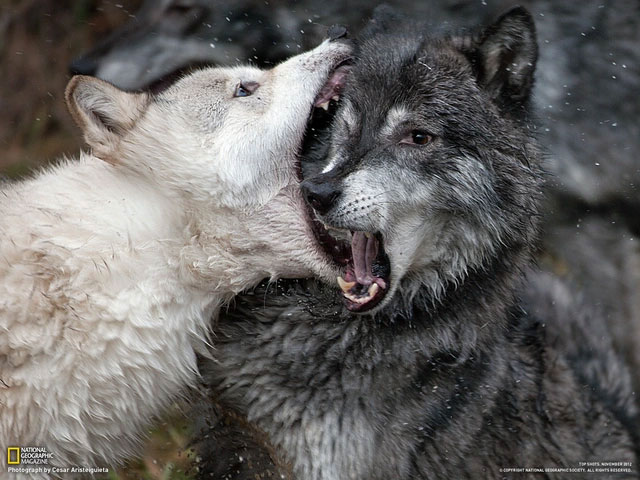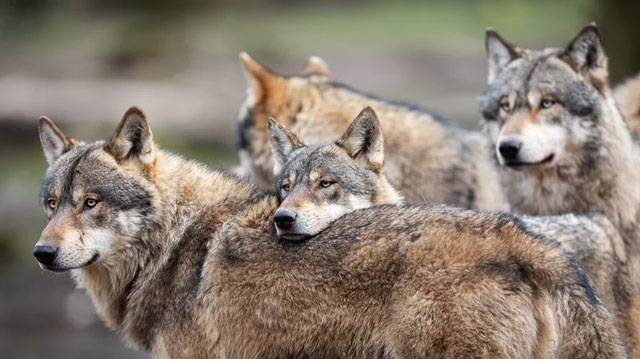It may sound appealing, but this is merely a concept that many impose on themselves to delude themselves into thinking they are truly special.
The alpha male wolf is defined as the leading male wolf with superior qualities, such as being the strongest in the pack, dominating, and leading other male wolves… Consequently, many people have associated this with humans and self-identified as alpha males.
But where does this term actually originate? The phrase emerged in the 1940s when a researcher named Rudolph Schenkel wrote a paper about wolves titled “Expression Studies on Wolves,” according to Gizmodo. The paper was based on research involving captive wolves, suggesting that wolves living in social structures were dominated by an alpha male and an alpha female. These alpha individuals could be ousted through conflict with pack members, but as long as they remained in power, they would dictate and enforce behaviors towards other wolves as well as control the structure of the entire pack.

In captivity, male wolves determine hierarchy within the pack through violence, competing for mates, food, and breeding rights…
Later, a paper by a scientist named David Mech further promoted this term, according to Discover. People quickly grasped this description of wolves and even inferred that the alpha structure must apply to other social systems, including human social systems. However, further studies have suggested otherwise. As early as the 1990s, scientists provided evidence that alpha wolves do not actually exist in the wild.
What do wild wolves really look like?

For wolves in the wild, things appear to be much more harmonious. Their packs are composed of family members, and thus the parent wolves are always the leaders.
Our understanding of wolf packs has become more accurate as scientists expanded their observations. In addition to studying wolves in captivity, they have observed wolves living in the wild to conduct deeper research on the behavior of this species. Through this, they found that captive wolf groups tend to form competitive social structures with alpha males and females, but in the wild, wolf packs are actually made up of closely related individuals: specifically, the mother and father, and their offspring.
In these groups, the parent wolves are responsible for leading the pack, and it is extremely rare for the pups to challenge their parents for control of the pack. Instead, the pups stay with their parents until they are about one year old, after which they venture out to establish their own territory and mates, according to ZME Science.
Therefore, the term alpha wolf likely only applies to captive wolves, as they are individuals brought together by humans to form a pack. In contrast, in nature, wolves built from familial relationships have the parents as the leaders to raise their young together. There have been a few instances of large wolf packs existing in the wild—where three or four generations of wolves can live together—where the oldest pair of wolves leads, or conversely, some pairs may separate and form their own packs.
|
Alpha individual (or dominant individual, prominent individual, or superior individual) is a biological term referring to the position of an individual within a social group of animals. Accordingly, the individual with this status is always at the top of the group and enjoys many privileges. Males, females, or both can be alpha individuals, depending on the species (for example, in chimpanzees, males are alpha males, while in hyenas, females are alpha). In cases where a male and a female fulfill this role together, they are sometimes referred to as alpha pairs. Alpha individuals are typically prioritized when it comes to being given food or gaining access to and courting mates. Alpha individuals can achieve their status through their own strength to rise to the upper ranks or through communication efforts and building alliances within the group. High-ranking individuals can sometimes change, often through a fight between them and a subordinate individual, in a battle that can cause injury or even lead to death. |


















































